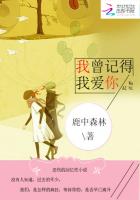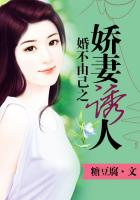A "Mixed Double" of young people were contesting a game of lawn tennis at the Rectory garden party; for the past five-and-twenty years at least mixed doubles of young people had done exactly the same thing on exactly the same spot at about the same time of year.
The young people changed and made way for others in the course of time, but very little else seemed to alter. The present players were sufficiently conscious of the social nature of the occasion to be concerned about their clothes and appearance, and sufficiently sport-loving to be keen on the game. Both their efforts and their appearance came under the fourfold scrutiny of a quartet of ladies sitting as official spectators on a bench immediately commanding the court. It was one of the accepted conditions of the Rectory garden party that four ladies, who usually knew very little about tennis and a great deal about the players, should sit at that particular spot and watch the game. It had also come to be almost a tradition that two ladies should be amiable, and that the other two should be Mrs. Dole and Mrs. Hatch-Mallard.
"What a singularly unbecoming way Eva Jonelet has taken to doing her hair in," said Mrs. Hatch-Mallard; "it's ugly hair at the best of times, but she needn't make it look ridiculous as well. Some one ought to tell her."
Eva Jonelet's hair might have escaped Mrs. Hatch-Mallard's condemnation if she could have forgotten the more glaring fact that Eva was Mrs. Dole's favourite niece. It would, perhaps, have been a more comfortable arrangement if Mrs. Hatch-Mallard and Mrs. Dole could have been asked to the Rectory on separate occasions, but there was only one garden party in the course of the year, and neither lady could have been omitted from the list of invitations without hopelessly wrecking the social peace of the parish.
"How pretty the yew trees look at this time of year," interposed a lady with a soft, silvery voice that suggested a chinchilla muff painted by Whistler.
"What do you mean by this time of year?" demanded Mrs. Hatch-Mallard. "Yew trees look beautiful at all times of the year. That is their great charm."
"Yew trees never look anything but hideous under any circumstances or at any time of year," said Mrs. Dole, with the slow, emphatic relish of one who contradicts for the pleasure of the thing. "They are only fit for graveyards and cemeteries."
Mrs. Hatch-Mallard gave a sardonic snort, which, being translated, meant that there were some people who were better fitted for cemeteries than for garden parties.
"What is the score, please?" asked the lady with the chinchilla voice.
The desired information was given her by a young gentleman in spotless white flannels, whose general toilet effect suggested solicitude rather than anxiety.
"What an odious young cub Bertie Dykson has become!" pronounced Mrs.
Dole, remembering suddenly that Bertie was a favourite with Mrs.
Hatch-Mallard. "The young men of to-day are not what they used to be twenty years ago."
"Of course not," said Mrs. Hatch-Mallard; "twenty years ago Bertie Dykson was just two years old, and you must expect some difference in appearance and manner and conversation between those two periods."
"Do you know," said Mrs. Dole, confidentially, "I shouldn't be surprised if that was intended to be clever."
"Have you any one interesting coming to stay with you, Mrs.
Norbury?" asked the chinchilla voice, hastily; "you generally have a house party at this time of year."
"I've got a most interesting woman coming," said Mrs. Norbury, who had been mutely struggling for some chance to turn the conversation into a safe channel; "an old acquaintance of mine, Ada Bleek--"
"What an ugly name," said Mrs. Hatch-Mallard.
"She's descended from the de la Bliques, an old Huguenot family of Touraine, you know."
"There weren't any Huguenots in Touraine," said Mrs. Hatch-Mallard, who thought she might safely dispute any fact that was three hundred years old.
"Well, anyhow, she's coming to stay with me," continued Mrs.
Norbury, bringing her story quickly down to the present day, "she arrives this evening, and she's highly clairvoyante, a seventh daughter of a seventh daughter, you now, and all that sort of thing."
"How very interesting," said the chinchilla voice; "Exwood is just the right place for her to come to, isn't it? There are supposed to be several ghosts there."
"That is why she was so anxious to come," said Mrs. Norbury; "she put off another engagement in order to accept my invitation. She's had visions and dreams, and all those sort of things, that have come true in a most marvellous manner, but she's never actually seen a ghost, and she's longing to have that experience. She belongs to that Research Society, you know."
"I expect she'll see the unhappy Lady Cullumpton, the most famous of all the Exwood ghosts," said Mrs. Dole; "my ancestor, you know, Sir Gervase Cullumpton, murdered his young bride in a fit of jealousy while they were on a visit to Exwood. He strangled her in the stables with a stirrup leather, just after they had come in from riding, and she is seen sometimes at dusk going about the lawns and the stable yard, in a long green habit, moaning and trying to get the thong from round her throat. I shall be most interested to hear if your friend sees--"













